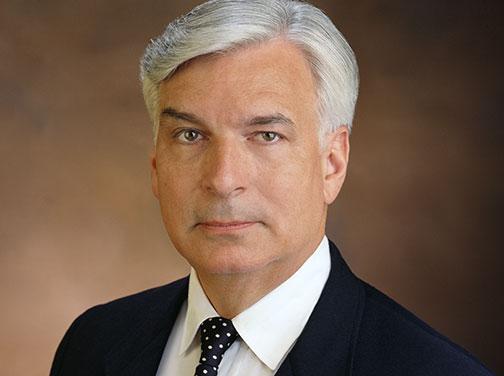April 5, 1940 – Aug. 26, 2013
One of the frustrating things about journalism — at least for us journalists — is that it is so transient. An article that takes months to research can capture attention for a day, then be instantly forgotten. Even the best TV segments, seen by millions, are unlikely to be remembered by many viewers a week later.
So it was that, until I began writing this story, I had never seen an extraordinary 1975 CBS News segment by Bruce Dunning ’62 about a dangerous effort to rescue South Vietnamese refugees during the last days of the Vietnam War. At the time, the piece was widely viewed as one of the most compelling broadcasts to emerge from the conflict. It still is.
Dunning’s path to Vietnam included stints in Florida and Paris, where he worked for the International Herald Tribune and CBS Radio. Eventually, CBS sent him to Vietnam to cover the war. Colleagues from both that period and later in his career remember him as notably modest. “He didn’t arouse aggression in a place that was very aggressive,” says CBS correspondent Bob Simon, who worked alongside Dunning in Vietnam.
Indeed, what is most striking about his 1975 segment is how understated it is. The story Dunning had to tell was nothing if not dramatic: He was aboard a World Airways jet that had flown into Da Nang — a city in South Vietnam that was about to fall to the North — with the intention of ferrying out women and children. But when the plane landed, it was surrounded by South Vietnamese soldiers who, determined to flee, began forcing their way on board in a chaotic confrontation. Only a few women and children ended up on the flight. The plane was damaged during the melee, and took off with people still hanging from it. It landed safely in Saigon more than 90 minutes later after a harrowing and uncertain journey.
In the nearly-five-minute-long segment, Dunning narrates this footage in an impeccably straightforward tone, never calling attention to the fact that he has placed himself in substantial danger. Today, in an age when journalists function as personal brands, Dunning’s approach is clearly the product of an older sensibility. “Can you imagine how some of the quote-unquote correspondents would handle that story today?” says Simon. “It would be all about them.”
The Da Nang dispatch would be the most famous of Dunning’s career, though he went on to serve as Asia bureau chief for CBS, developing an expertise on Japan. After retiring in 2005, Dunning devoted time to Princeton, editing the Class of 1962’s 50th-reunion book and eventually becoming class president. He also began to let his classmates know something many of them had not realized: that he was gay. He brought his partner of more than 25 years, Tetsunori Kawana, a well-known Japanese artist, to his 50th reunion.
The couple lived together in a loft in Union City, N.J., but Kawana traveled often for work. When Kawana was overseas, Dunning would phone him every morning to deliver a wake-up call, according to Ellen Fleysher, a former CBS colleague and close friend. In May, Kawana was traveling in Japan. One morning, when the wake-up call didn’t come, Kawana knew something was wrong. Dunning had taken a bad fall. He slipped into a coma, and died in August.
As I spoke to Dunning’s former colleagues at CBS and learned more about him, I found it impossible not to feel nostalgia for the journalistic values he personified. It’s true that since Dunning filed his dispatch from Da Nang, journalism has become more democratic and less elitist. Yet there’s also no doubt that, thanks to social media, journalists today are expected to be not only masters of reporting and writing, but virtuosos of self-promotion. People like Dunning seem increasingly hard to find.
“The Da Nang report was a metaphor for his life,” Peter Herford, a CBS veteran, tells me via email. “There were many at CBS News who wished there had been another correspondent on that story. There was palpable disappointment when it was noted that Bruce would be doing that ‘winner’ story. He was not seen as a winning personality, as if the story needed it. He underplayed the story precisely as it should have been reported. He did not get in the way; he cleared the path and let the story tell itself. The result was memorable.”
Richard Just ’01, the chairman of PAW’s advisory board, is the former editor of The New Republic and, most recently, Newsweek.


